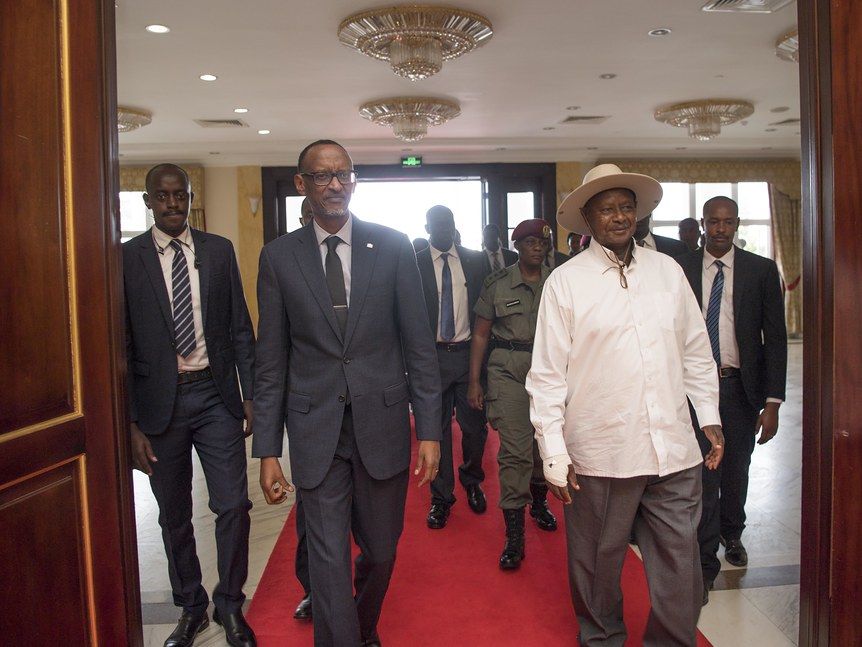Figurations of Internationalized Rule in Africa

African governments must take conflicting expectations into account. While pursuing their own political agendas, international donors push for rationalization of state agencies and insist on political and economic liberalization. Domestic power groups seek to shape policies advanced by development partners in ways that enhance their prospects for preserving and maximizing their interests in the state sector. Moreover, representatives of African governments seem to follow a classic "image of the state." Main categories in this conception of the state are ideas such as sovereignty, territory, and population.
Based on this understanding of contradictory expectations and using historical political sociology as a theoretical framework, this project aims to identify the political figurations resulting from these constellations. We assume that the quality of the relationships will shape the guiding implicit and explicit patterns of action. Our research question, then, is: what practical norms guide the personnel of African government officials and donors in the form of figures of internationalized rule?
By practical norms, we mean a set of actions that are context-specific and pragmatic. This allows us to see that not all behavior by agents of African states can be explained by the simple dichotomy of social norms (private) and official norms (public).
Three cases - Uganda, Rwanda, Kenya - are examined on the basis of a semi-structured, reiterative logic of comparison. While Rwanda and Uganda are understood as post-war settings, the analysis of Kenya will shed light on whether practical norms differ substantially in a country that has not experienced war in recent times. A variety of research methods will be employed: In addition to document analysis and expert interviews, the project will attempt to use multi-sited participant observation as an innovation for studying internationalized politics in Africa.
The project will contribute to an understanding of African politics that is less burdened with normative expectations (democracy, development, security). It will enable both scholars and practitioners to better understand what the figuration, the web of relations, of internationalized rule consists of.
Project members
Julian Friesinger, Jude Kagoro, Klaus Schlichte
Project related publications
Friesinger, Julian; Saalfeld, Jannis, 2022: The prospects of cross-class alliances in former bureaucratic development societies: comparing Taiwan and Burkina Faso, in Third World Quarterly, 43 (1), pp. 187 - 205, doi:10.1080/01436597.2021.1999225.
Friesinger, Julian, 2021: Patronage, Repression, and Co-Optation: Bobi Wine and the Political Economy of Activist Musicians in Uganda , in: Africa Spectrum, 56 (2), S. 127 - 150, doi:10.1177/00020397211025986.
Kagoro, Jude, 2019: The Crime Preventers Scheme: A Community Policing Initiative for Regime Security in Uganda, in: Journal of Intervention and Statebuilding, 13 (1), S. 41 - 56
Friesinger, Julian, 2017: Brief aus Nairobi (Analyse zu den kenianischen Wahlen 2017), in: Welttrends – das außenpolitische Journal, 2017 (135), S. 20 - 21
Schlichte, Klaus, 2017: The International State. Comparing Satehood in Central Asia and Sub-Saharan Africa, in: Heathershaw, John; Schatz, Ed (Hg.), The Logic of Weak States, Philadelphia, PA : Philadelphia University Press, S. 105 - 119
Phillips, Joschka; Kagoro, Jude, 2016: The Metastable City and the Politics of Crystallisation: Protesting and Policing in Kampala, in: Africa Spectrum, 51 (3), S. 3 - 32
Kagoro, Jude, 2016: Competitive Authoritarianism in Uganda. The Not so Hidden Hand of the Military, in: Zeitschrift für vergleichende Politikwissenschaft, S. 1 - 18, doi:10.1007/s12286-015-0261-x
Kagoro, Jude, 2015: Militarization in Post-1986 Uganda. Politics, Military and Society Interpretation , Münster: LIT Verlag
Kagoro, Jude, 2015: Militarization or Improved Policing? The Interplay Between the Military and the Police in Uganda., in: Ewusi, Samuel Kale/Butera, Jean Bosco (Hg.), Beyond State-Building: Confronting Africa’s Governance and Socio-Economic Challenges in the 21st Century, Addis Ababa: Тюменский государственный университет , S. 99 - 125, Link (Stand: 03.11.2015)
Schlichte, Klaus, 2015: Der internationale Staat. Parallelen politischer Herrschaft in Zentralasien und Afrika, in: Burchardt, Hans-Jürgen; Peters, Stefan (Hg.), Der Staat in globaler Perspektive. Zur Renaissance der Entwicklungsstaaten, Frankfurt: Campus, S. 219 - 242
